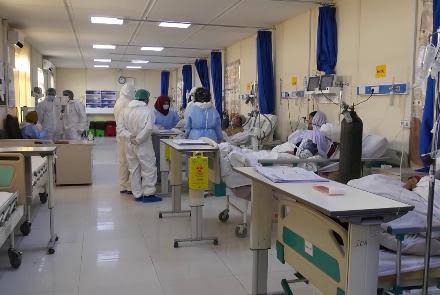Pakistan Faces Black Fungus Crisis: Urgent Action Needed to Combat Deadly Infection
By [M Zaeem Saqib]
Pakistan is in the grips of a health emergency as cases of mucormycosis, commonly known as black fungus, continue to surge across the nation. This rare fungal infection has already claimed numerous lives, highlighting the urgent need for immediate action to address the critical shortage of treatment options. Among the casualties of this deadly disease is Dr. Aqeel Ahmad Khanzada, the former Chief Executive Officer of Health in Muzaffargarh and former Additional Medical Superintendent at Nishtar Hospital in Multan.
Dr. Khanzada, a distinguished healthcare professional, was the first Pakistani doctor to be nominated by the United Nations Population Fund (UNFPA) in recognition of his outstanding contributions to reducing the Maternal Mortality Rate and Infant Mortality Ratio. His untimely demise serves as a grim reminder of the devastating impact of mucormycosis and the urgent need for concerted efforts to combat this deadly infection.
The scarcity of liposomal amphotericin B, the recommended treatment for mucormycosis, has exacerbated the crisis, leaving patients and their families desperate for life-saving medication. Moreover, the lack of specialized treatment centers further complicates the situation, as patients struggle to access timely and adequate medical care. The government and healthcare authorities are facing mounting pressure to address these critical shortages and provide support to those affected by the disease.
In response to the escalating crisis, it is imperative for the government to take immediate action to address the shortage of treatment options and enhance public awareness about mucormycosis. Healthcare professionals must be equipped with the necessary resources and expertise to effectively diagnose and manage cases of black fungus. Additionally, efforts should be made to expand research and development initiatives aimed at developing new treatments and preventive measures.
The international community also has a crucial role to play in supporting Pakistan during this health emergency. Collaborative efforts and resources from global health organizations can help bolster the country’s response to the mucormycosis crisis and mitigate its devastating impact on public health.
As the nation grapples with this unprecedented health crisis, the people of Pakistan are looking to their leaders for swift and effective action. It is imperative for the government to prioritize the allocation of resources and mobilize all available means to combat the spread of black fungus. Every minute counts, and prompt action can mean the difference between life and death for those affected by this deadly infection.
In conclusion, the black fungus crisis in Pakistan demands urgent attention and decisive action from all stakeholders. Dr. Aqeel Ahmad Khanzada’s legacy as a dedicated healthcare professional serves as a reminder of the importance of prioritizing public health and safety. Let us come together to save lives and mitigate the impact of mucormycosis on our communities. The time for action is now.




